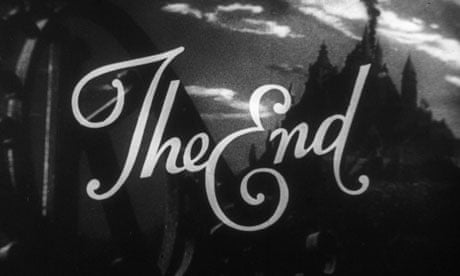Yes! Vindication! I am one of those people who can't read a book without flicking to the end to check what's going to happen, and it turns out that, rather than being an "impatient idiot who is spoiling it for myself", actually I am very wise. Scientists say so, so it must be true.
A study by Nicholas Christenfeld and Jonathan Leavitt of UC San Diego's psychology department, due to be published in the journal Psychological Science, gave subjects 12 short stories, by authors including Agatha Christie, Roald Dahl and John Updike. Some were presented in their classic form, others with spoiler paragraphs, with each version read by at least 30 people. And you know what? The spoiled readers actually had more fun.
"Subjects significantly preferred the spoiled versions of ironic-twist stories, where, for example, it was revealed before reading that a condemned man's daring escape is all a fantasy before the noose snaps tight around his neck," the research reveals. "The same held true for mysteries. Knowing ahead of time that Poirot will discover that the apparent target of attempted murder is, in fact, the perpetrator not only didn't hurt enjoyment of the story but actually improved it."
As a huge reader of crime and thrillers, this is definitely rings true for me. Sometimes I like to try and guess the twist/murderer (I rarely, rarely manage); mostly I like to know in advance. Quite often when reading horror novels, I get so frightened I need to check the hero/heroine is still alive at the end of the book, and I usually take a sneak peak at the end of romantic reads just to make sure who is going to end up with whom. This tendency has long been criticised by my nearest and dearest; now I shall present them with this research – that "people who flip to the last page of a book before starting it have the better intuition", and that "spoilers don't spoil stories".
The psychologists go on to wonder why this is: perhaps, they say, it's because it's "easier" to read a spoiled story. "It could be," says Leavitt, "that once you know how it turns out, it's cognitively easier – you're more comfortable processing the information – and can focus on a deeper understanding of the story." Yes, I can see this – I knew the twist before watching The Sixth Sense, and it meant that I could scrutinise the film carefully to see if it actually held together. (This is the nerdy, obsessive way I like to behave.)
I am not sure I agree with this assertion, though – that the reason spoilers don't matter is because plot is overrated, and "plots are just excuses for great writing. What the plot is is (almost) irrelevant. The pleasure is in the writing". I like my spoiled plots and twists to be good, as well as well-written.
Anyone else care to reveal a fondness for spoilers? I will also admit that, even when I know full well what is going to happen in a book, either because I've read it a million times before (Gone with the Wind) or because I've flipped to the end (countless thrillers), I often find myself hoping that, this time, it's going to be different, that Rhett and Scarlett are going to end up together... Now I just need a psychological study to prove that that tendency isn't, also, ridiculous.

Comments (…)
Sign in or create your Guardian account to join the discussion